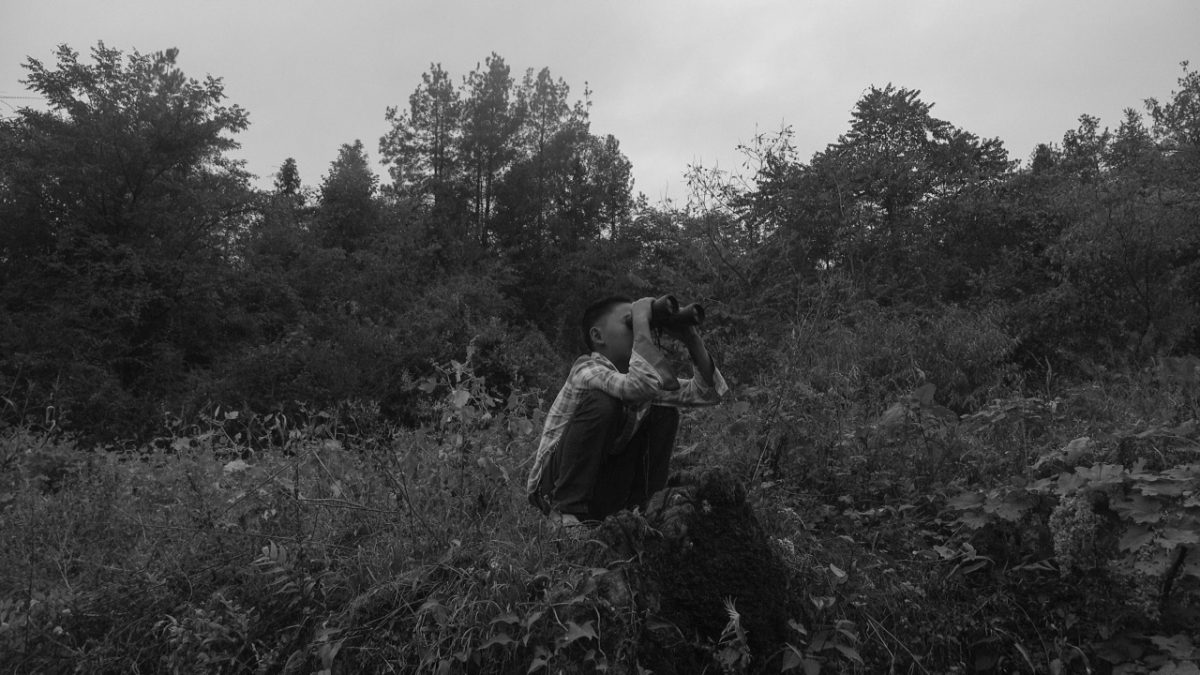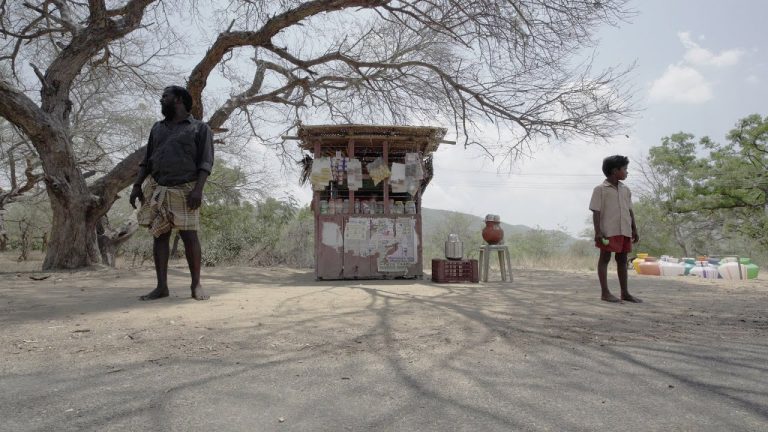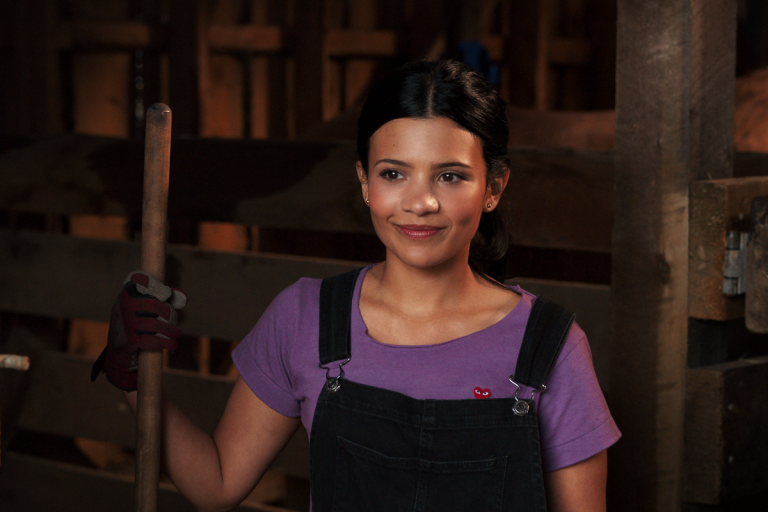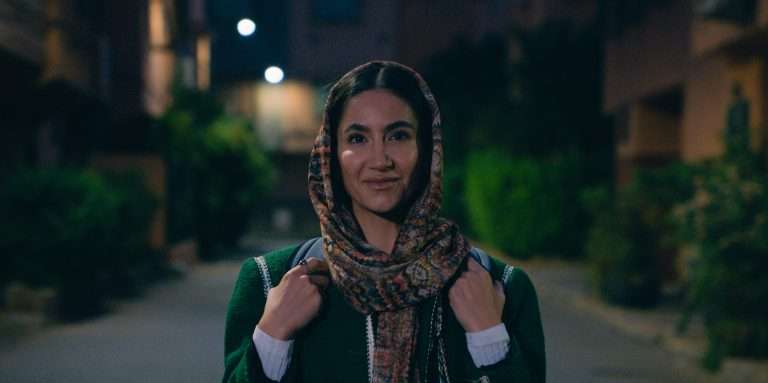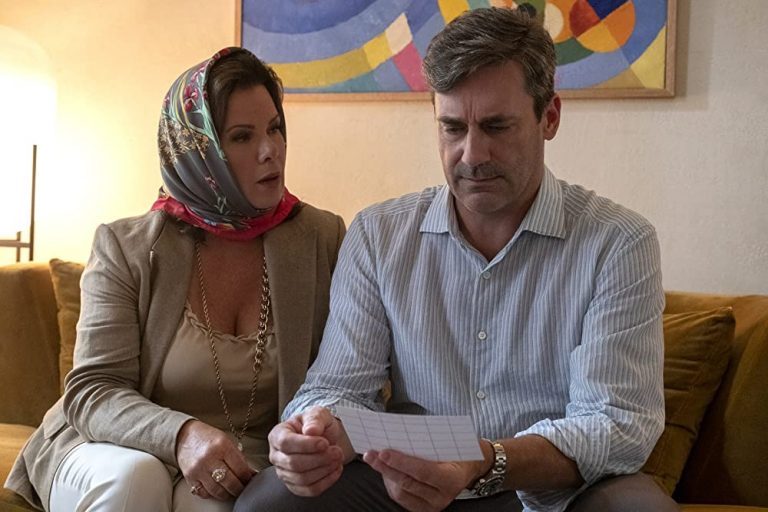In Deming Chen’s debut Always (A Letter to Childhood, 2025), poetry seeps through serene, spectacular images and verbal pockets. There are the sprawling landscapes of the mountainous village in Yunan that immediately transport; within it unfolds the intimate tale of the eight-year-old Youbin. Smoke rising from a pot, the still, expansive wides of the landscape-Chen’s frames, mostly in monochrome, are hypnotic, arresting the languorous pull of memory.
Every natural element comes richly alive-drifting leaves, the flock of birds racing into the distance, canopies that feel like they encompass the whole world. Chen lets us slip into this world with smoothness and fluency. Our familiarization with the family, the way of life in the depths of this mountainous province, transpires in a restful, unforced manner. We ramble with the villagers grazing their livestock, and rearing pigs. Always sweeps out luxuriously, the gaze always empathetic, open, and abloom with mellow curiosity.
The storytelling stays embedded in a deeply, austerely observant mode. In a series of long shots, we’re steadily immersed in the specific temporal reality of the village the boy inhabits. Life is quiet, unhurried, and disentangled from the outer world but there’s no patina of romance in Chen’s gaze without belying the absolute lack of opportunity. Stagnation exists cheek-by-jowl with the overwhelming mountainous splendor in the Sangzhi county focalizing the frame.
How do we funnel the grace of living from the earth when the soul itself is arid, seeking love and anchorage whittled away early? Poetry and language emerge, therefore, a site of shelter for Youbin, as well as landscapes being his companion. Along with his classmates, he soaks in Chinese poetry lessons. They are encouraged to spin their own verses, which punctuate the wisp of chapters. Youbin creates to salvage some meaning in the unique loneliness of childhood. Through his spare, delicate poems, he forages the feeling of disconnection that curls up, an early loss whose fallout hasn’t quite been parsed in full measure. Youbin’s articulation reaches us through his poems. They are a distillation of his alienation, a search for some kind of grounding.
His mother fled when he was three months old and hasn’t tried to get back in touch. Chen doesn’t push at the scars abandonment leaves in its wake, a child’s longing but we sense it in his loosely floating embodiment. His father got injured at the factory, leaving his grandparents to support them. They play the role of Youbin’s parents, both indulging and chiding him when he’s overstepping. They allow him just to be and drift through life in the village while gently nudging him every now and then.
Chen situates a wonderful, ambling quality. We follow these lives but the film ensures their privacy. Never does the film overly trespass, instead, it stays rapt and perceptive to Youbin’s family and their steady persistence in the face of harsh times. Chen stresses the dissonance between the boy’s family, the village from mainland news, and the government’s low-cost housing projects that don’t percolate down to them. It’s like an island tucked away. They absorb the roving loudspeaker broadcasting developments on the anvil blankly, but later we do see them learning to fall back on such measures, not without a certain alienation, struggling to place themselves. As time rolls by, Always flashes its wistful coming-of-age underside, concentrated tightly in Youbin who has to move into responsibilities, gather himself, and lead his family to a semblance of stability.
Visually stunning and revealing its emotional layers without amping up dramatic energy at any beat, Always heralds an assured new voice to watch in Deming Chen. His tender understanding moves across varied spheres -the way time unspools, how people weigh and joust with straitened circumstances, rhythms of a far-flung life, and how it unfolds for both the young and the old. There’s such an easy confidence in Chen’s handling that the detailing comes off as effortlessly evoked. Always is a textured work, bearing cadences that hover through the span of several years yet simultaneously, and miraculously, finding the heartbeat of the moment. This is a stunningly polished debut, wise, reflective, and moving in its gaze.

